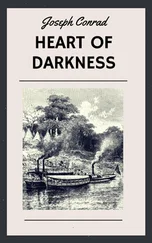You perceive the force of a word. He who wants to persuade should put his trust not in the right argument, but in the right word. The power of sound has always been greater than the power of sense. I don't say this by way of disparagement. It is better for mankind to be impressionable than reflective. Nothing humanely great—great, I mean, as affecting a whole mass of lives—has come from reflection. On the other hand, you cannot fail to see the power of mere words; such words as Glory, for instance, or Pity. I won't mention any more. They are not far to seek. Shouted with perseverance, with ardour, with conviction, these two by their sound alone have set whole nations in motion and upheaved the dry, hard ground on which rests our whole social fabric. There's "virtue" for you if you like! . . . Of course the accent must be attended to. The right accent. That's very important. The capacious lung, the thundering or the tender vocal chords. Don't talk to me of your Archimedes' lever.
He was an absent-minded person with a mathematical imagination. Mathematics commands all my respect, but I have no use for engines. Give me the right word and the right accent and I will move the world.
What a dream for a writer! Because written words have their accent, too. Yes! Let me only find the right word! Surely it must be lying somewhere among the wreckage of all the plaints and all the exultations poured out aloud since the first day when hope, the undying, came down on earth. It may be there, close by, disregarded, invisible, quite at hand. But it's no good. I believe there are men who can lay hold of a needle in a pottle of hay at the first try. For myself, I have never had such luck. And then there is that accent. Another difficulty. For who is going to tell whether the accent is right or wrong till the word is shouted, and fails to be heard, perhaps, and goes down-wind, leaving the world unmoved? Once upon a time there lived an emperor who was a sage and something of a literary man. He jotted down on ivory tablets thoughts, maxims, reflections which chance has preserved for the edification of posterity. Among other sayings—I am quoting from memory—I remember this solemn admonition: "Let all thy words have the accent of heroic truth." The accent of heroic truth! This is very fine, but I am thinking that it is an easy matter for an austere emperor to jot down grandiose advice. Most of the working truths on this earth are humble, not heroic; and there have been times in the history of mankind when the accents of heroic truth have moved it to nothing but derision.
Nobody will expect to find between the covers of this little book words of extraordinary potency or accents of irresistible heroism. However humiliating for my self esteem, I must confess that the counsels of Marcus Aurelius are not for me. They are more fit for a moralist than for an artist. Truth of a modest sort I can promise you, and also sincerity. That complete, praise worthy sincerity which, while it delivers one into the hands of one's enemies, is as likely as not to embroil one with one's friends.
"Embroil" is perhaps too strong an expression. I can't imagine among either my enemies or my friends a being so hard up for something to do as to quarrel with me. "To disappoint one's friends" would be nearer the mark. Most, almost all, friend ships of the writing period of my life have come to me through my books; and I know that a novelist lives in his work. He stands there, the only reality in an invented world, among imaginary things, happenings, and people. Writing about them, he is only writing about himself. But the disclosure is not complete. He remains, to a certain extent, a figure behind the veil; a suspected rather than a seen presence—a movement and a voice behind the draperies of fiction. In these personal notes there is no such veil. And I cannot help thinking of a passage in the "Imitation of Christ" where the ascetic author, who knew life so profoundly, says that "there are persons esteemed on their reputation who by showing themselves destroy the opinion one had of them." This is the danger incurred by an author of fiction who sets out to talk about himself without disguise.
While these reminiscent pages were appearing serially I was remonstrated with for bad economy; as if such writing were a form of self-indulgence wasting the substance of future volumes. It seems that I am not sufficiently literary. Indeed, a man who never wrote a line for print till he was thirty-six cannot bring himself to look upon his existence and his experience, upon the sum of his thoughts, sensations, and emotions, upon his memories and his regrets, and the whole possession of his past, as only so much material for his hands. Once before, some three years ago, when I published "The Mirror of the Sea," a volume of impressions and memories, the same remarks were made to me. Practical remarks. But, truth to say, I have never understood the kind of thrift they recommend. I wanted to pay my tribute to the sea, its ships and its men, to whom I remain indebted for so much which has gone to make me what I am. That seemed to me the only shape in which I could offer it to their shades. There could not be a question in my mind of anything else. It is quite possible that I am a bad economist; but it is certain that I am incorrigible.
Having matured in the surroundings and under the special conditions of sea life, I have a special piety toward that form of my past; for its impressions were vivid, its appeal direct, its demands such as could be responded to with the natural elation of youth and strength equal to the call. There was nothing in them to perplex a young conscience. Having broken away from my origins under a storm of blame from every quarter which had the merest shadow of right to voice an opinion, removed by great distances from such natural affections as were still left to me, and even estranged, in a measure, from them by the totally unintelligible character of the life which had seduced me so mysteriously from my allegiance, I may safely say that through the blind force of circumstances the sea was to be all my world and the merchant service my only home for a long succession of years. No wonder, then, that in my two exclusively sea books—"The Nigger of the Narcissus," and "The Mirror of the Sea" (and in the few short sea stories like "Youth" and "Typhoon")—I have tried with an almost filial regard to render the vibration of life in the great world of waters, in the hearts of the simple men who have for ages traversed its solitudes, and also that something sentient which seems to dwell in ships—the creatures of their hands and the objects of their care.
One's literary life must turn frequently for sustenance to memories and seek discourse with the shades, unless one has made up one's mind to write only in order to reprove mankind for what it is, or praise it for what it is not, or—generally—to teach it how to behave. Being neither quarrelsome, nor a flatterer, nor a sage, I have done none of these things, and I am prepared to put up serenely with the insignificance which attaches to persons who are not meddlesome in some way or other. But resignation is not indifference. I would not like to be left standing as a mere spectator on the bank of the great stream carrying onward so many lives. I would fain claim for myself the faculty of so much insight as can be expressed in a voice of sympathy and compassion.
It seems to me that in one, at least, authoritative quarter of criticism I am suspected of a certain unemotional, grim acceptance of facts—of what the French would call secheresse du coeur . Fifteen years of unbroken silence before praise or blame testify sufficiently to my respect for criticism, that fine flower of personal expression in the garden of letters. But this is more of a personal matter, reaching the man behind the work, and therefore it may be alluded to in a volume which is a personal note in the margin of the public page. Not that I feel hurt in the least. The charge—if it amounted to a charge at all—was made in the most considerate terms; in a tone of regret.
Читать дальше












